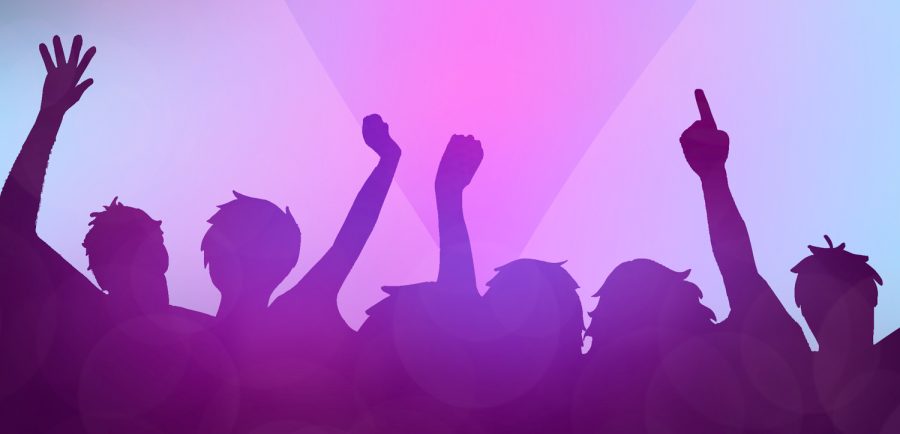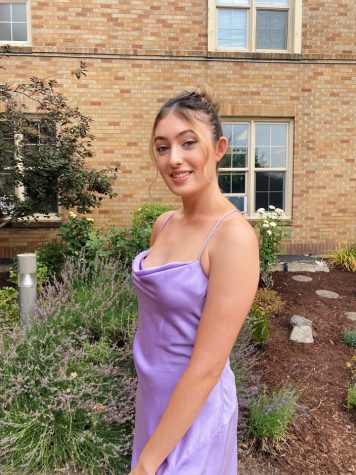OPINION: Live music is not what it used to be
Rising ticket costs, overwhelming crowds, corporate culture affect concert experience
Concert culture and music culture is ever-changing.
November 17, 2022
It is true that almost everything changes and evolves over time.
Going to the mall with your friends suddenly turns into aimless online shopping from the comfort of your couch.
Instead of sitting and ordering food at a restaurant, food can magically appear at your front doorstep.
And instead of buying records, CDs and albums, we rely on streaming services to listen to our favorite songs.
There is no doubt that some of these things are extremely beneficial, like having every song ever made available to you at the touch of a button. However, society often overlooks the so-called butterfly effect of these changes.
Due to a lack of music and album sales, many artists rely on streaming services like Spotify to make money. As of 2020, Spotify holds about a third of the streaming market share, so it is safe to say they are doing well.
According to Untapped Sound, the platform pays on average $0.004 per playback. Therefore, for an artist to earn at least a dollar, they need to reach 250 listeners.
This means that many artists rely on live concerts as a large portion of their income. Tours come with additional revenue like insanely priced VIP passes, fan merchandise and side promotions.
As a result, artists are spending an extraordinary amount on tours to make sensational concert experiences. This also means that people will spend hundreds to thousands of dollars to see their favorite artists live in a jam-packed stadium.
An average concert ticket price to see Lady Gaga is $420, Celine Dion is $355 and Rolling Stones is $624. And those are just the average prices for stars of that caliber.
According to The Most Expensive, the priciest concert tickets ever sold were to the Ahmet Ertegun Tribute Concert, with legendary rock band Led Zeppelin. The prices for tickets were several thousands of dollars, with some tickets costing $14,000 or more.
It is true that music brings people together. And as someone who loves music, I think concerts can be a fun and fulfilling experience. Live music has the potential to connect thousands of individuals who share the same passion for music.
With that being said, concerts are not always what they seem to be. Overwhelming crowds, stressful presales and overpriced tickets affect whether it is worth going or not.
Senior marketing major Janine Surge said she has been to over 50 concerts because she loves the experience and creating memories. Surge said her favorite types of shows are EDM and festival-based concerts because there is the opportunity of seeing more artists.
Surge also said festivals are a better deal for people wanting to see more artists for a smaller price point. In general, Surge is willing to pay more for a festival rather than a single artist.
“I’ve been to a few festivals where I paid $150 and saw 20-plus artists in three days,” Surge said.
She said that this way, you are pretty much paying 10-15 for each artist that you see.
“It’s crazy — I’ve seen SZA and The Weekend for like $10, basically.”
Surge said that seeing popular artists can be very expensive, which is another reason she goes to festivals.
“I feel like for bigger artists, their concerts are becoming more and more expensive. I’ve heard of people spending thousands of dollars on Harry Styles tickets,” Surge said.
Large music festivals like Coachella, for example, cost between $549 and $649 per person. While that is certainly not cheap for most people, it might save some money in the long run when people can see all their favorite artists at once.
Mia Murphy, junior management information systems major, has gone to various pop concerts, including Ariana Grande and Shawn Mendes. According to Murphy, the most she has paid for a ticket is around $200.
Murphy said she thinks concert ticket prices are increasing mainly due to the pandemic. Murphy pointed out that many tours were canceled during the pandemic, so many artists are trying to gain back revenue. However, Murphy feels that the overall concert experience has changed because of this.
“I feel like artists are more focused on money, rather than the authenticity of the concert,” Murphy said.
Maybe money is the problem. Or maybe it is just the passage of time and the inevitable changes that come with that.
Either way, the culture and accessibility of live music are changing immensely, and only time will tell if it is for the better.










